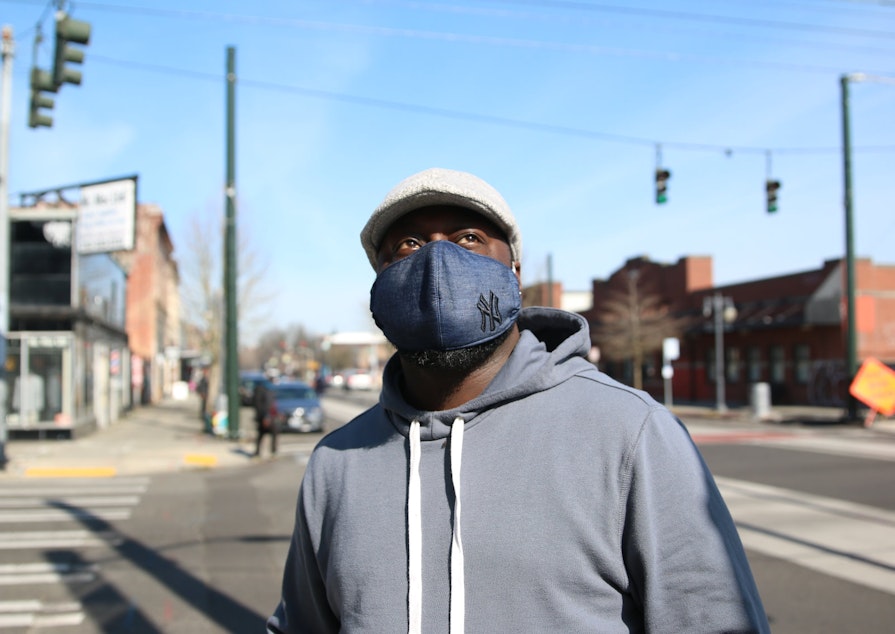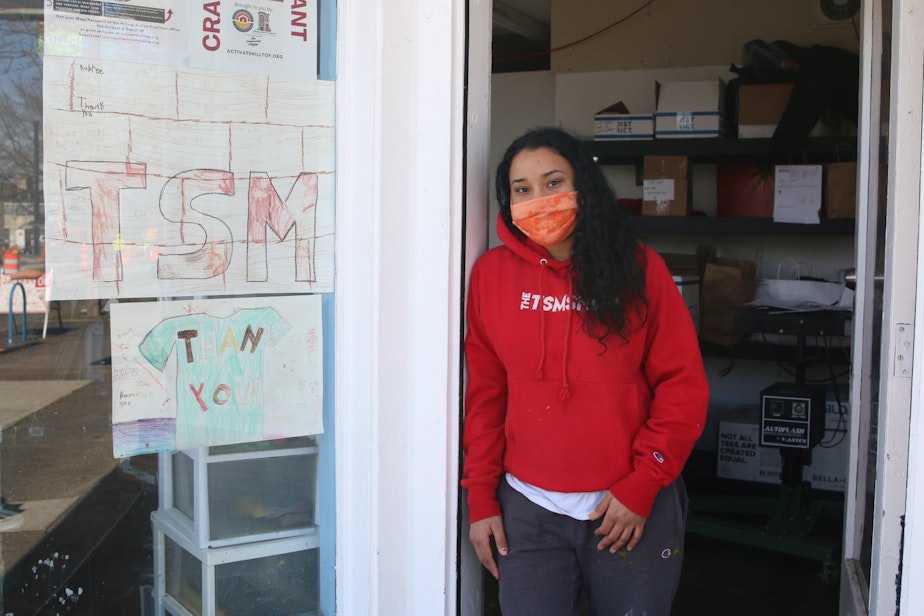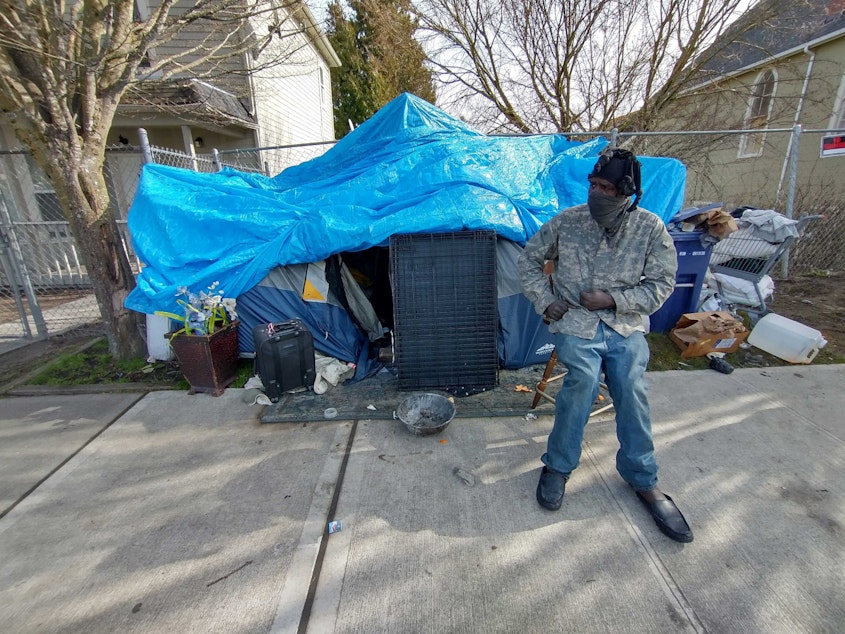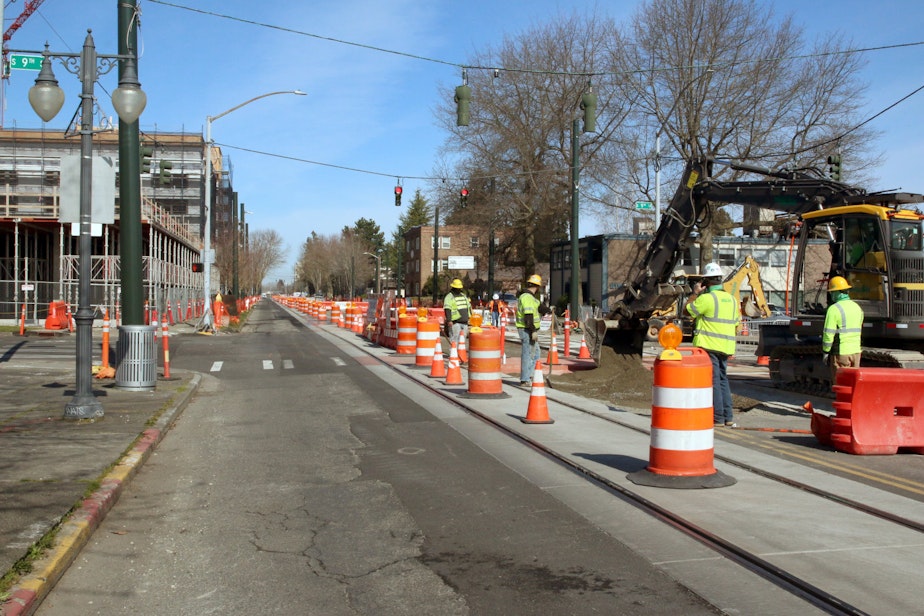Tacoma's Hilltop has hope for an equitable recovery

Businesses in Tacoma's Hilltop neighborhood are trying to recover from the pandemic. And economic recovery looks certain, with the light rail coming next year and big housing projects on the way.
But how does recovery happen in a way that doesn’t push out existing residents and businesses?
Crystal T.J. works at The T-shirt Men, a silkscreening shop on MLK Way in Hilltop.
“Growing up, my mom would not really bring us over here," she said. "And now, it’s really transitioned itself into a much more welcoming and safer environment.”
The gang violence that she’s talking about declined dramatically over the years — residents worked hard to make that happen. That created the stable conditions where businesses, including many Black-owned businesses, could thrive. But it also set the table for new investors to come in.

Change is even more likely now, with Sound Transit putting the light rail right down the middle of the neighborhood. The new rail lines will connect Hilltop with downtown Tacoma.
The 2009 Poet Laureate of Tacoma, Antonio Edwards Jr, used to live in Hilltop. He wrote a poem called "Hilltopia" about what could happen as the neighborhood was being discovered by white developers.
The poem begins: To the People of the Hilltop... Do you NOW realize what you got? Because they sure do. They’ve been strategizing... Been mobilizing... Behind the scenes... Because there’re really scared of ya... So they rather get rid of ya... Take care of ya. This time, there’re calling it Gentrification…
Hilltopia
Antonio Edwards Jr, 2009 Tacoma Poet Laureate, performs his poem "Hilltopia" for KUOW
The pressure to move is everywhere.
“Businesses have come and gone," said Crystal T.J., pointing at the storefronts across the street. "These have all changed in the last...seven years.”
Rents have risen, too.
More people are homeless. They’re feeling the pressure to move too. That’s what happened to Tony Nelson.
“I got the tent from a friend named Tisa," Nelson said of his sidewalk home. "I just built onto it. It’s just a temporary one. We’ve got to move it, because the church wants it moved.”

Helping businesses and residents remain here, even as the neighborhood changes, is going to take some work — and people are doing that work.
Brendan Nelson is director of the Hilltop Action Coalition. He said one key is to help local businesses survive, especially at-risk Black-owned businesses.
“These are businesses that have not just been in the community serving food or selling clothes," Nelson said. "These are people that have provided food, for funerals when the families couldn’t afford it. Providing clothing to a family when they couldn’t afford it. So it became much more about family — and that’s the history of the Hilltop. That’s why we are so much about supporting that small business in any way that we can.”
Nelson has been organizing neighborhood business crawls. They draw a month’s worth of visitors in a single day. He said last time, people bought gift cards from local restaurants and gave them to people living in tents.
Projects like the business crawl need funding. Sound Transit stepped forward as a sponsor. Sound Transit also produced a series of videos promoting local businesses.
“Sound Transit is really at the table, having conversations with organizations like the Hilltop Action Coalition, wanting to get feedback from residents about the impact of what they are doing,” Nelson said.

Nelson said many signs suggest this neighborhood might actually benefit from the investment coming here.
“I’m seeing an opportunity. And I’m choosing to be optimistic.”
He added that there’s further reason for optimism around a couple big housing projects being built by non-profit developers: Forterra and the Tacoma Housing Authority.
Nelson said those projects could actually help reverse some of the gentrification that has already begun here.
“We’re hoping to bring back Black-owned businesses in the Hilltop. And there’s been a commitment from the Forterra Team and the Tacoma Housing Authority that are working on two developments here: that at least 80% of the businesses in their development would be Black owned.”
There are still a lot of challenges, but gentrification is not inevitable, Nelson said.
Antonio Edwards Jr, who wrote the poem referenced earlier, agrees. He said new money can benefit underserved communities, so long as those communities are honored and protected.
Sound Transit’s Tacoma Link extension opens in Hilltop in 2022.
This story is part of a new series, The Main Street Project, in which KUOW Reporter Joshua McNichols looks for signs of economic recovery on important streets throughout our region.
If you have an idea for a street he should visit, write jmcnichols@kuow.org.




